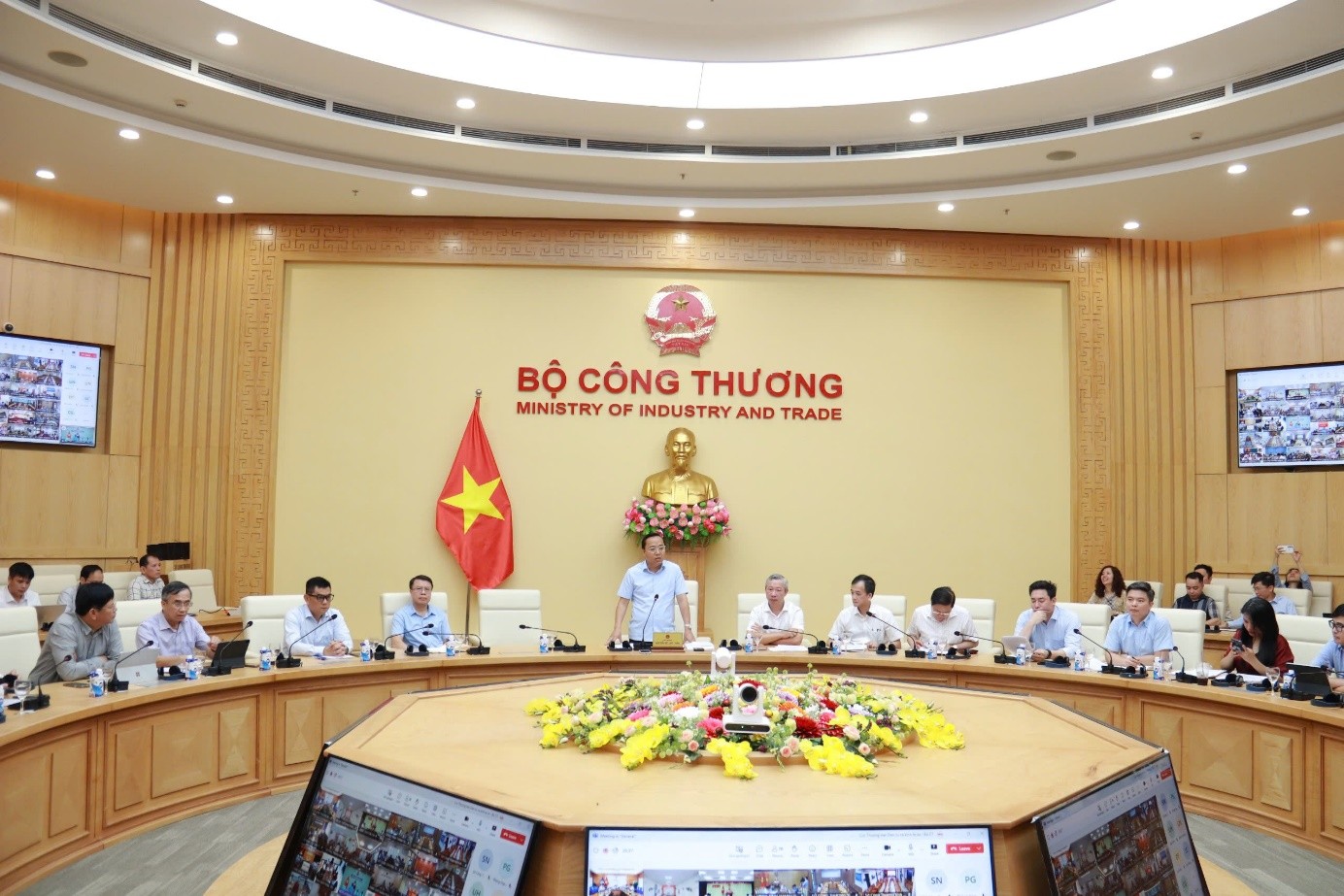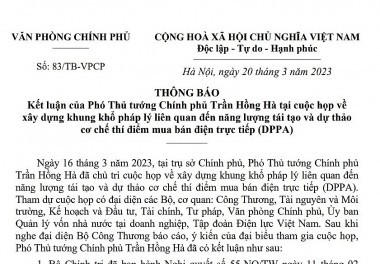The Ministry of Industry and Trade requested provinces, cities and Electricity of Vietnam (EVN) to implement a direct power purchase agreement (DPPA)
07:03 | 19/07/2024
Specifically, MOIT requested 63 provinces and cities to direct specialized electricity agencies to carry out inspection and supervision of the renewable energy generation units and large electricity users within the scope of the management on compliance with regulations in Decree 80 and relevant legal regulations including.
1. The legal regulations on investment planning and investment (including conformity with national electricity development planning and provincial planning approved by competent authorities).
2. Regulations on licensing electricity activities.
3. Regulations on fire and explosion safety in construction, land, environmental protection and safety in electricity use.
4. Regulations on electricity trading and contracts.
5. Other relevant legal regulations.
The localities are responsible for monitoring and managing the list of the large electricity customers under their management and implementing direct power purchase through separate connection lines as prescribed in Point a, Clause 2, Article 29 of Decree 80. On the other hand, to carry out inspection, supervision and resolve complaints, handle violations during the implementation of the direct power purchase mechanism according to the scope of the management area.
According to the initial recommendations of experts from Vietnam Energy Magazine, The Prime Minister's early approval of Decree 80 so that the direct power purchase mechanism (DPPA) can be quickly implemented will create more " buyers" in the competitive electricity market, instead of just EVN, the current electricity distribution corporations under EVN, bringing the market closer to the competitive "wholesale" and "retail" level.
On the other hand, DPPA will create opportunities for the strong investment development of renewable energy plants and create opportunities for businesses soon to obtain renewable energy certificates and carbon emission reduction certificates to increase commodity competitiveness when exporting to international markets.
However, in the current context, as well as in the short term, Vietnam Energy Magazine has recommended several issues to note as follows:
Firstly: Whether direct (through a private connection line), or virtual (through the national grid), direct power purchase contracts also create great pressure on the power grid to balance the amount of renewable electricity energy increasing day by day. Therefore, it is necessary to have dispatch policies appropriate to the load capacity of the power grid.
Secondly: The current price of gas electricity and storage electricity are one and a half times higher than EVN's retail electricity price, so it does not encourage businesses (other than EVN) to invest in this field, even though Power Development Planning VIII has shown great ambitions. If EVN invests on its own, it will cause losses. But without electricity gas and electricity storage, it is impossible to further increase renewable energy as required by businesses that want DPPA.
Thirdly: Currently, Vietnam has not applied 2-component electricity prices, so preparation and maintenance capacities to provide customers with DPPA with some renewable energy plants become extremely expensive (if electricity is only sold according to the amount of power actually supplied on demand, which is always unexpected within the market price frame limited).
Not having a capacity fee will create an unfair business because EVN does not have the money to maintain online capacities for ready-generating electricity.




